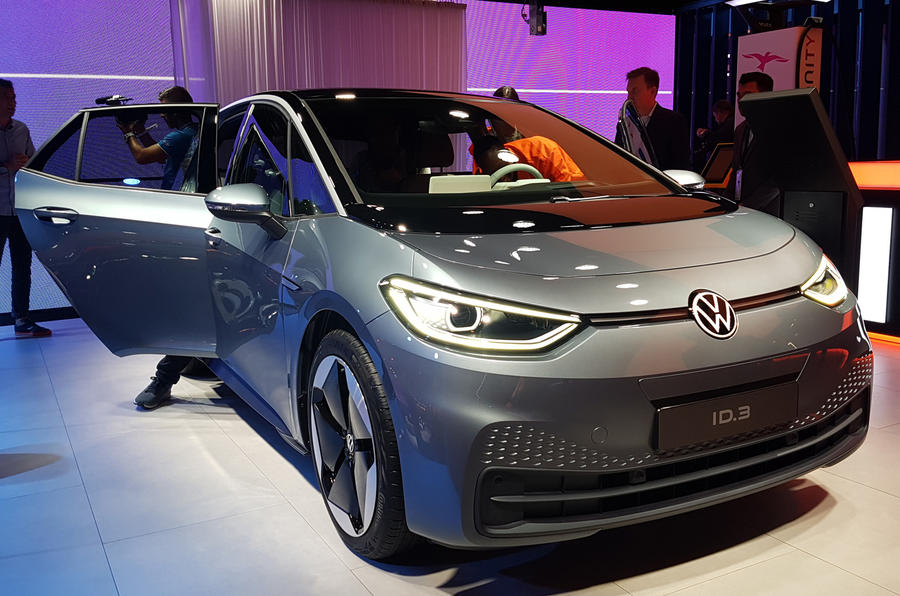Thanks to striking British Airways pilots, we took the train from London to Frankfurt (just one change at Brussels, if you’re interested).
The German city's impressive Victorian main station was festooned with posters advertising hybrid cars as well as very large ‘lifestyle’ ads from Volkswagen, signalling the company’s new ID electric car family and brand re-launch at the Frankfurt motor show.
Frankfurt motor show 2019: live news and updates
Four years is not a long time in the car industry, which makes VW’s massive electric re-tooling in that period highly impressive. A new electric platform, specialist factories and a deal to sell Ford its electric MEB ‘skateboard’ chassis, on which the ID range will be based, is very fast work.
Dieselgate broke almost exactly four years ago, with Volkswagen caught cheating in the US market, hiding the fact its cars could not meet strict US pollution laws.
The scandal rolled back to Europe where the cheating was less outrageous, but it was clear that a combination of inadequate EU lab testing and too-clever-by-half manufacturer tricks rather undermined diesel as the fuel that would help lower fleet CO2 levels while being affordable and offering long-range and brisk performance.
In the intervening four years, the EU introduced stricter pollution laws and real-world tests but, much more importantly, has put in train extremely demanding fuel economy laws, which start to kick-in next year.
The short version is that many carmakers have to sell quite a few electrified vehicles for 2021. According to one calculation, the average will be between 8 and 15% of annual new car sales. Makers of larger cars, including Daimler, Jaguar Land Rover and Volvo, are looking at a share of 10% and above.
Selling a pure EV is the most efficient way of driving down a company’s fleet CO2 figure, which is why you’ll be hear an awful lot about battery electric cars over the next six months.
According to detailed calculations by Berlin-based automotive analyst Matthias Schmidt based on the complex rules used to work out a maker’s fleet CO2, Volkswagen will need to sell around 300,000 electric cars next year. That’s as well as selling many more plug-in hybrid version models of its conventional cars in order to hit its EU target average of 96g/km of CO2.
To give you some idea of the sales mountain European carmakers have to climb, Schmidt’s figures show that in the first half of 2019, China saw sales of around 550,000 electric vehicles (though this includes light commercial vehicles) Western Europe 184,000 sales, with 127,000 sales in the US and a minuscule 13,000 in Japan.






Join the debate
Add your comment
Opinion: Frankfurt is when
Opinion: Frankfurt is when electrification gets serious
It was already serious. It was started by Tesla but you hacks do not give credit where its due. Typical.